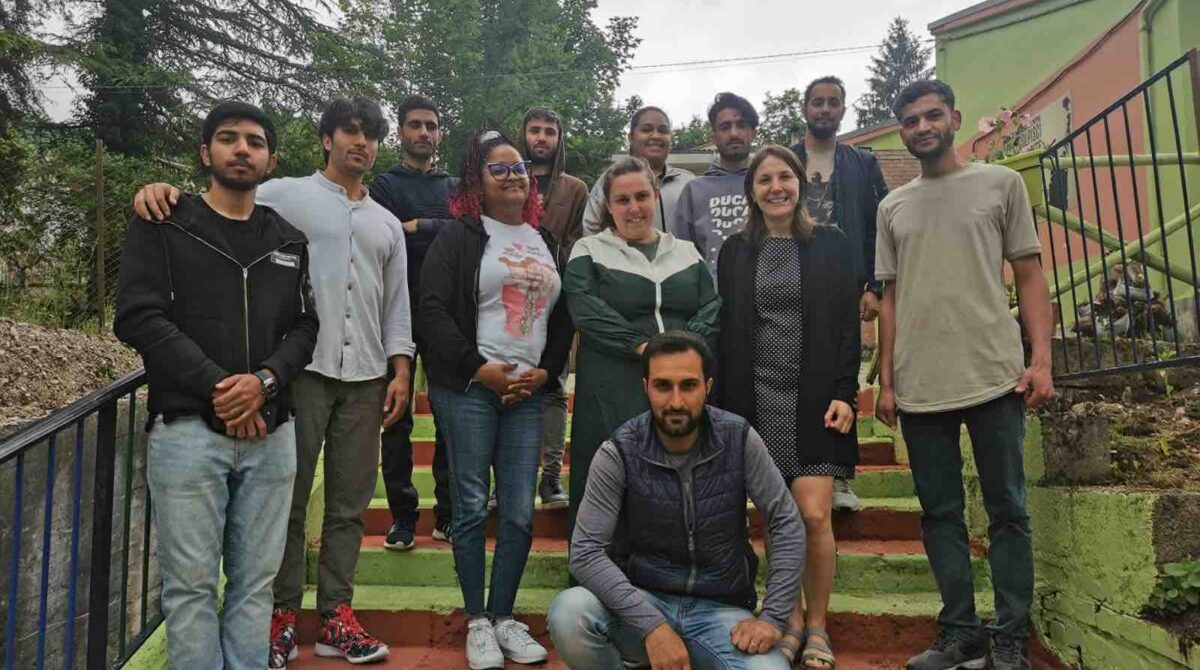The “Neet Youth for Sustainability” project involves young people, aged 15 to 29, who are not working nor studying in order to develop skills that relate to activities that are deeply rooted in the local area and environmentally conscious. How does the project come about and what does it consist of?
The project aims to create three sustainable production chains, one melliferous, one for helicopter farming and one for dairy, in which NEET youth will be trained and placed into work.
The idea came about as a result of the earthquakes and heavy snowfall that affected the areas above Gran Sasso Island and the resulting depopulation.
Especially for young people, there are many difficulties in cultivating job prospects and identifying the potential in the area.
These territories have always been devoted mainly to agriculture and pastoralism, but trying to place a young person – among the few who are there – within such contexts is not easy, because they see themselves more projected in big cities in contexts of consumption, economy and marketing.
Indeed, the project funded with 8×1000 funds from the Soka Gakkai speaks of reactivation.
The natural disasters that hit the area not only destroyed the infrastructure but also the ability of young people to see this area as their own territory.
We like to use the inclusion of the two hundred bees made through the project as a metaphor. We know that the work of bees is not only honey, but first and foremost pollination, which is vital for the revival of the area.
One of the goals of the project is to encourage the creation of a network in which the needs of small producers can meet those of NEET youth and consumers, with a view to integrating, reactivating, reducing waste and optimizing raw materials. In addition, products from the supply chains are disseminated in local outlets and on the specially created e-commerce site.
Reactivating a sense of community within an area like this is not easy but it is definitely the most important work we can do. We have put together about 35 NEETs that include boys and girls, migrants and Italians.
In addition, thanks to 8×1000 funds from the Soka Gakkai and collaboration with the University of Teramo, in order to acquire knowledge in agriculture, university courses have been activated in veterinary medicine, biotechnology in an agricultural environment and food processing.
You work closely with lots and lots of young people who find new hope for their future thanks to the project. What obstacles do you encounter most that undermine young people’s motivation? How do you encourage them when they have no prospects for the future?
The project supports a listening desk supported by a psychologist. Often young people, both Italians and foreigners, come to the desk dissatisfied because they have tried several times to realize a working dream of theirs, and sometimes for economic reasons, sometimes because of the unwillingness of their families to accommodate their dream, they have found themselves at some point discrediting it and abandoning it … hence, also the bitterness of feeling inadequate.
In such cases, simply a pat on the back is not enough.
The project involves the provision of endowments to be used for young people who, as a result of the interviews, find the motivation to embark on educational paths in any field, the resumption of university studies or starting a business.
For more sensitive cases there is a much deeper intake, done with the social worker. Some migrants for example come here sent by their families for economic reasons and any job is the right one. They find jobs in agriculture where they find a lot of exploitation and little dignity.
The person is not simply a machine that works, when there is love and respect for what you do, the person is able to activate at a deeper level and bring out new inner resources and potential unexpressed until that moment.
The fact that young NEETs have the opportunity to study means recognizing that person’s life expectations that go beyond “picking tomatoes” imagining that he or she can become a veterinarian or an agricultural engineer if they desire so… unfortunately, discrimination is also the failure to recognize the other as a carrier of values and knowledge.
INTERVIEW WITH SADAT – YOUNG BENEFICIARY OF THE PROJECT
My name is Sadat, I am 23 years old and I am from Afghanistan, I am very interested in issues related to sustainable agriculture that I can study and deepen here.
Thanks to the project I am attending a course to improve my Italian and I am studying at the University of Teramo, for me it is a great opportunity. At the same time, the project gives me the chance to put into practice what I study for example learning how to make honey or cheese, gaining experience and gaining more self-confidence. I feel that I am slowly changing my outlook on life.
I had a previous experience in Afghanistan, where I studied Applied Agricultural Economics for two years, and we had a practical part there as well.
When I go back to Afghanistan I will share the new farming methods I am learning, which are different from what we use. My desire is to be able to share the experience we are having here so that it can be replicated in other contexts.
Since the first time I came here I wanted to learn something and then go back to my country and share all my ideas and results. As I said before, in Afghanistan we have a typical, very old and traditional agriculture. would really like to thank the Salam Association and the Soka Gakkai Italian Buddhist Institute for this opportunity.
